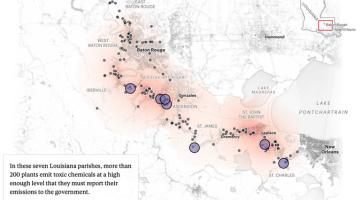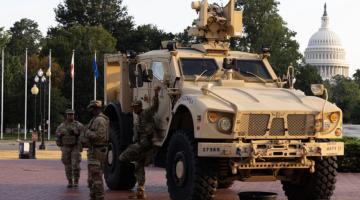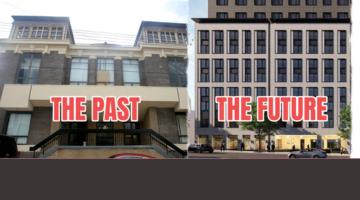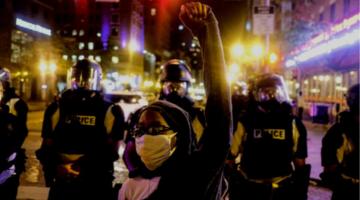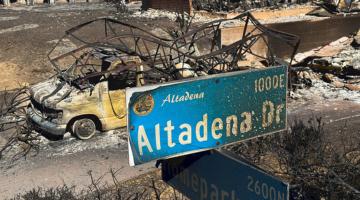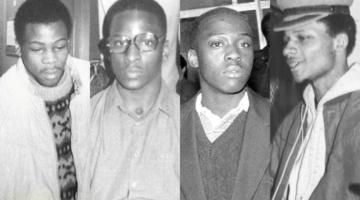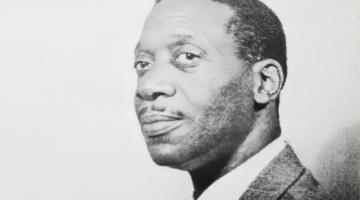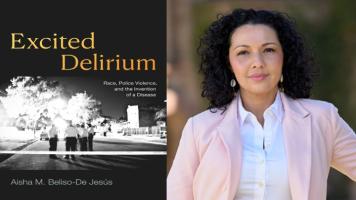The DC Crime Bill is a continuation of the assault on the Black working class, created to expand control over Black communities via surveillance, hyper incarceration, and increased brutality.
Originally published in PACA
The "Secure DC” Omnibus bill is the latest attempt by DC’s local government to impose law and order, while ignoring the root issues that lead to street-level crime and advancing the war against the Black working class. After passing unanimously by the DC Council's Committee on the Judiciary and Public Safety, the new crime bill was voted on and unanimously passed on February 6, 2024, by the full council. Pan-African Community Action (PACA) contends that Black people in the U.S are a domestic colony, an internal colony that is enforced by a massive police presence meant to control and keep us exploited for our labor and other human resources. Consequently this bill will impose more state surveillance; grant police and the state more authority to target, harass, and brutalize Black residents; and expand the police occupation of the ghettos of Black people in DC.
Crime bills are a national phenomena in the U.S. and are nothing new. They are a means of enforcing punitive policies against the dispossessed and a way to feed the national security industrial complex in response to crises such as homelessness, poverty, and gentrification. We cannot confront this issue of the crime bill with the tunnel vision that confines us locally and keeps us disconnected from other domestically colonized Africans within the U.S. settler state. Crime bills are reactionary responses of a settler-colonial ruling class intended to preserve an exploitative order under deteriorating social conditions. At the same time, the ruling class uses its pervasive corporate media to manufacture the illusion of widespread informed consent.
Lawmakers like DC Councilmember Brooke Pinto—who represents the predominantly affluent and white Ward 2—have the power to introduce and enact policy that adversely impacts other wards that are predominantly Black and working-class. Capitalism convinces people of the fallacies of representative democracy because the revolutionary potential of participatory democracy goes against the interests of the ruling class. Participatory democracy requires that the Black community be organized, which would empower us to enact policies born from the creative genius of our culture that get to the root causes of street-level crime and create real public safety in our communities.
Most people who are locked up in jail are awaiting trial but not convicted. “Most are detained in local jails because they cannot afford to pay the bail amount set to secure their release." So pretrial detentions regularly result in a fundamental violation of Fifth Amendment rights—the right to not be "deprived of life, liberty or property without due process of law."
The bill also calls for a new provision that grants police the power to detain people who cannot pay their Metro fare and force them to provide their name and address or be subject to fine. This provision and the entire bill directly targets our community almost exclusively, particularly those who struggle to move about the city under increasing costs of living in DC and a rising unemployment rate. It will also give police more justification to target, detain, and surveil Black people by seizing their personal information.
Another provision in the bill will bring back an anti-masking provision that was part of DC law prior to the COVID-19 pandemic. This provision provides police an additional legal basis to detain someone and the courts a basis to compound any charges against that person. On its face, this provision ignores the fact that the COVID-19 pandemic is not over and people who are wearing masks to protect themselves and their community from illness could be targeted by police.
The anti-masking provision is a perfect example of how colonial powers use “objective” laws to criminalize Black people. The white woman shopping with a mask on is considered socially responsible and respected for her public health choices. By contrast, Black youth shopping for candy bars or clothing with compromised immune systems or with elderly relatives at home are not considered socially responsible; rather, they are believed to create fear or intimidation, thereby potentially triggering an armed response by the police.
The bill also contains a policy that will allow the police chief to declare a small, defined area a “drug free zone” and decree that for up to five days, it be illegal to gather there “for the purpose of participating in the use, purchase, or sale of illegal drugs.” Then, police could order people who they believe are involved in drug activity to disperse—and arrest whomever they claim has ignored their orders. This will allow the police to control, harass, and intimidate Black people throughout DC and in their own neighborhoods. It will allow police to give baseless, arbitrary orders to disperse based on their alleged “suspicions.” Research has already shown that drug-free zones criminalize Black youth and do not protect them.
Contrast drug-free zones in Black communities with the fact that these zones don’t exist in white communities. A condition of colonial occupation is the curtailment of the mobility of the colonized and confining them to the ghettos on the periphery of metropoles.
Another provision reduces the felony amount of stolen goods from $1000 to $500. This proves the Council’s intent to target low-income people, not reduce crime. Enforcement of DC’s housing codes is so lax that thousands are enduring a dangerously cold winter with no heat at home, while the city does nothing. If a low-income person were to take 10 space heaters, together valued at $500, from Walmart to keep their family and neighbors from literally freezing to death, they would be charged with a felony and face pretrial detention followed by prison time. And their family would still be cold.
By contrast, if Walmart regularly changes the timecards of a few of its low-income workers—a common practice known as wage-theft—denying the workers $5,000 of pay for work performed, no one would go to jail. That’s because in DC, wage theft by multinational corporations is a civil offense, not a crime. But the City Council is not interested in stopping that kind of crime; they are only interested in incarcerating more low-income Black people.
This is demonstrated in the recent lawsuit by the Attorney General Brian Shwalb accusing 14 of the largest developers in the District for colluding with property managers and a third party to fraudulently raise the rent for tens of thousands of District residents, effectively robbing the tenants of millions of dollars. No crime bill is designed to incarcerate the executives of these predatory corporations; rather, the legal system allows corporations and their executives to operate with no more than a slap on the wrist while continuing to prey on the Black working-class community.
These provisions, along with many other proposed policies in this bill, will likely result in more criminalization of Black working-class people. Even more importantly, the bill fails to adequately address the root issues that lead to crime: poverty, addiction, food insecurity, inadequate housing, demeaning self-images, and many others. Further, the bill does not implicate white supremacy, patriarchy, and capitalism in both creating these root issues and maintaining a racial and class-based hierarchy in DC.
As the armed wing of the settler-colonial state, the police will always serve the interests of the ruling class: protecting the ruling class’s property, enforcing the ruling class’s laws, and existing as an occupying force in DC’s Black neighborhoods. The crime bill gives the police more power and authority to fulfill and advance the state's so-called “war on crime.” Last August, DC Ward 8 Councilmember Trayon White referred to DC as “a warzone” and even requested that the National Guard come to DC and occupy the streets. In a recent interview, Councilmember Pinto and Fox 5 DC broadcaster Tom Fitzgerald fear-mongered about carjackings in the city while failing to address the systemic inequities that lead to crime. Later, Pinto called the DC Metropolitan Police Department “excellent partners for us in this city,” and justified giving police more discretion and power to address unacceptable levels of crime. It must be made clear that a war against crime, led by the ruling class and their political servants, will always be a war against the Black working class.
The reforms proposed in the “Secure DC” bill cannot replace the need to build community-led power. PACA understands that real and permanent solutions to systemic inequities and root issues are achieved by shifting power into the hands of an organized African/Black working class.
Towards that end, PACA endeavors to develop political education and participatory programs of action: programs that promote our right to self-determination and meet the material needs of our people. To ensure real safety and security in our communities, we must fight for community control over police and implement a new, transformative vision of what can be done to serve and protect our communities.
As Malcolm X once asserted, “Power in defense of freedom is greater than power in behalf of tyranny and oppression, because power, real power, comes from conviction which produces action, uncompromising action. It also produces insurrection against oppression. This is the only way you end oppression—with power.”
Pan-African Community Action, PACA is a grassroots group of African/Black people organizing for community based power and a member organization of Black Alliance for Peace.
@Blacks4Peace

